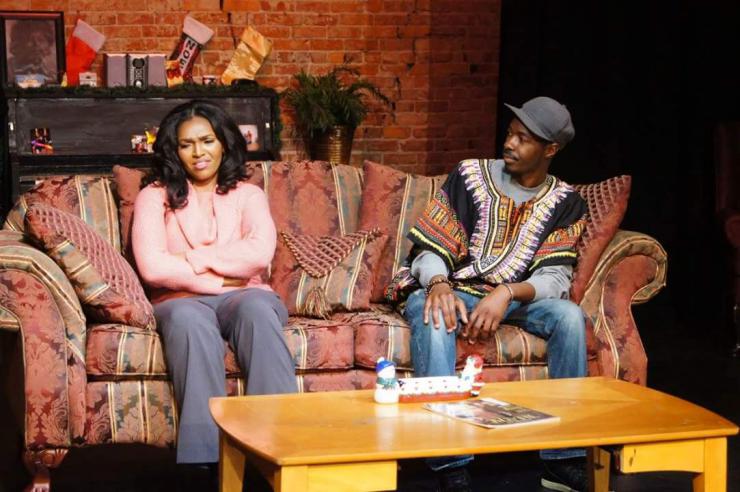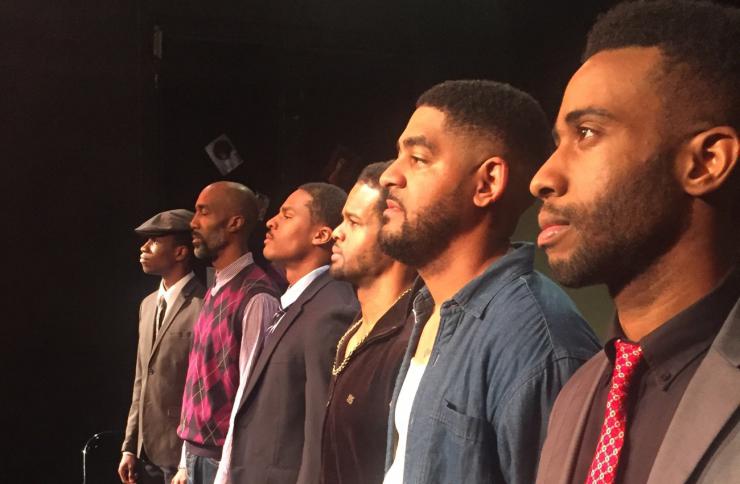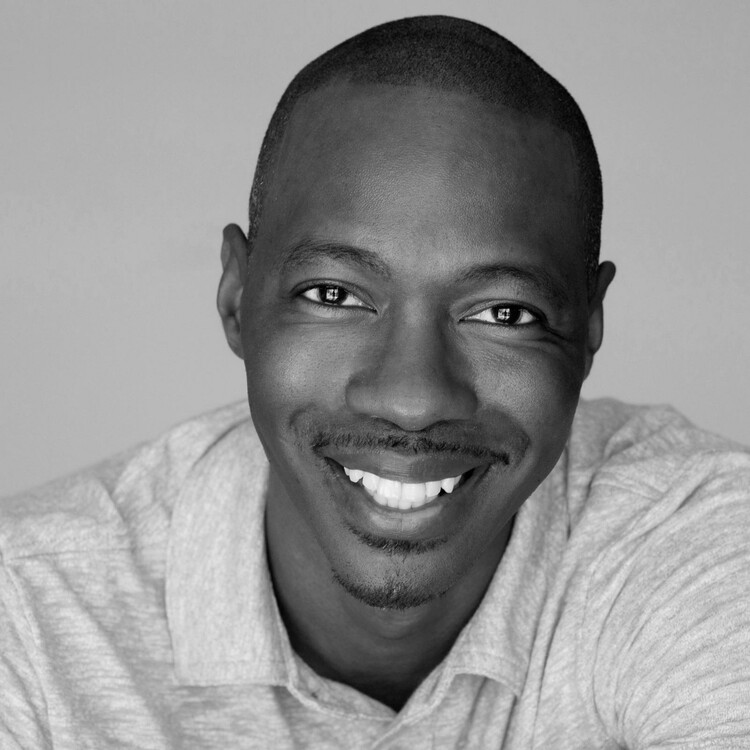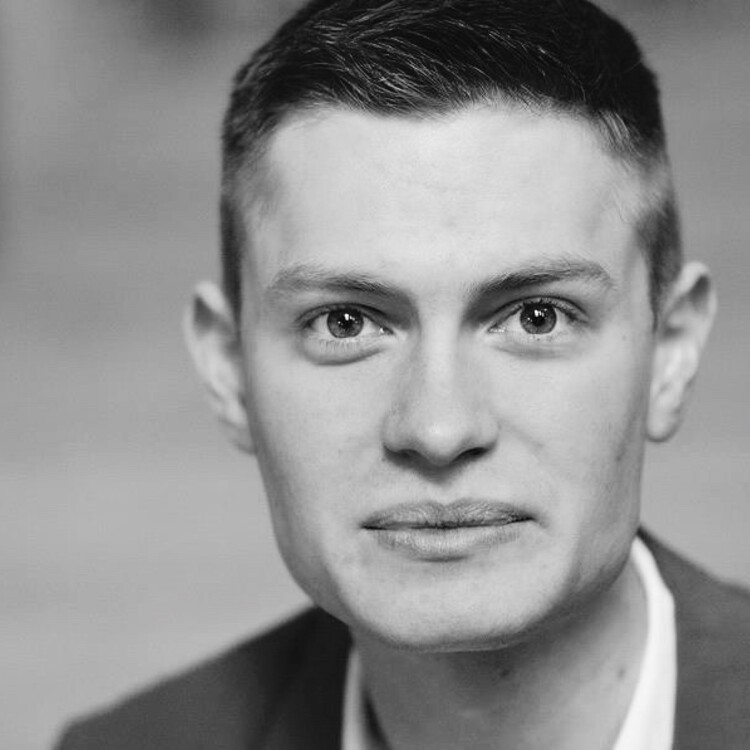Coloring Music City's Theatrical Landscape
Nashville, Tennessee is well known as the Music City, but the rest of the performing arts scene doesn't get much attention. This series highlights Nashville’s lively artistic community, built on a foundation of interdisciplinary collaboration. In this “It City,” artists are paving a way forward for live performance while wrestling with an economic boom and rapidly changing needs for representation on our stages. Actor, writer, and director Shawn Whitsell has been at the forefront of creating spaces for performers of color in Nashville. His passion to see African-American stories on stage and develop engaged audiences for them speaks to how the artistic community is navigating a racial history that has both painful and powerful passages.—Daniel Jones, series curator
I sat in my seat, overflowing with excitement and anticipating the greatness I was sure to behold. The theatre was smaller than I’d expected. A sold out venue of hundreds of theatregoers is definitely nothing to scoff at, but I expected thousands. I expected bigger, I mean, this was Broadway—the pinnacle of professional theatre. But what did I really know about Broadway? Nothing!
What I did know was that there was nothing small about the journey Suzan-Lori Parks was about to take us on in Topdog/Underdog. The fact that the characters looked like me made the experience extra special. I spent the next two hours, mesmerized as I watched one of my favorite hip hop artists Mos Def and my favorite actor, the incomparable Jeffrey Wright, breathe life into the words. I left feeling inspired and motivated to dive back into theatre after a two-year hiatus. I wanted to share experiences like this with my city, Nashville.
Days later, I sat on a plane pointed toward Music City with the play still reverberating in my head, armed with a renewed mission and prepared to take flight, literally and figuratively. A month later, I made my Nashville debut at the Darkhorse Theater. That was 2002 and the beginning of my journey into Nashville theatre.

In 2007, I founded the Destiny Theatre Experience for the purpose of creating opportunities for actors of color. Though there were black-owned theatre companies that did great work by black playwrights who addressed the beauty and complexities of black life and helped pave the way for me, there needed to be more. I wanted to layer my voice into the textures of Nashville’s artistic landscape. Working closely with Mary McCallum’s SistaStyle Productions, sometimes co-producing shows, we provided spaces for black actors to sharpen their skills and display their gifts. The Shades of Black Theatre Festival, which I founded with McCallum, Michael L. Walker, Candy Robins, and others, was an extension of that vision.
Presenting theatre with themes about black life is not about exclusivity, it’s about focus.
I’ve worked in Nashville theatre for years, bouncing between community, semi-pro, and professional theatre, and I’ve had the pleasure of witnessing its growth, accompanied by the inevitable growing pains. At times, I’ve felt frustrated by a lack of representation of actors of color on some stages. As the leader of a theatre company trying to combat that by producing work by artists of color, my work often gets pegged as "black theatre." I am proud to represent this label on a personal and cultural level, but the downside is that being labeled "black theatre" gets work regulated to "other," as opposed to "niche." You get lumped into "black theatre" and often not mentioned in the same categories as other companies. The challenge becomes maintaining your uncompromised vision, while fighting for equal respect and opportunity. Presenting theatre with themes about black life is not about exclusivity, it’s about focus. We should be afforded the liberty to create space for actors of color without being placed in a box that limits us. Though I personally feel loved and respected by the larger Nashville theatre community, I am still fighting to knock down the walls that attempt to confine my company and our work.

Though not perfect, Nashville provided experiences that aided in my artistic maturation, and, it is my duty to nurture the soil where I was able to plant seeds. This means I have to continue to challenge ideas and practices that don’t serve the wellness of the community. I must continue to push myself and others to think outside the box, and develop new and interesting ways to create and share stories. I strive to honor this idea each day.
As the city is rapidly changing, and opening its arms to thousands of newcomers, the theatre community is also diversifying. The issues and themes being addressed are broadening, as more platforms become available to nurture local playwrights. Artists are taking more risks, and some companies are pushing the traditional limits of how theatre is done.
Theatre can serve as a megaphone for marginalized voices.
As new inhabitants flood the city, new hip, trendy condos and coffee shops sprout (seemingly overnight), traffic becomes increasingly annoying, and we struggle with Nashville’s awkward dance with its new level of fame, the theatre community seems to be priming itself to embrace the city’s new normal and the wide array of temperaments, sensibilities, and ideologies that come with it. However, as gentrification continues to greatly impact communities of color, it’s important that we provide and protect our creative spaces in order to continue addressing issues that affect us.
Nina Simone said that it’s an artist’s duty to reflect the times. With so many incidents of police brutality, sexual assault, and other human rights issues happening nationally and locally, there are more social justice themes rising in the work of Nashville artists, thus helping to cultivate minds, raise consciousness and spread awareness.
Theatre can serve as a megaphone for marginalized voices. As the city becomes flooded with people with more privilege and access to resources, we must continue to create spaces for unheard voices reflecting the world they know.
We must make the work we do contagious and build the Nashville we want to see for all the budding artists and theatre-goers looking to be inspired by representation of themselves in art, much like I did at my first Broadway show sixteen years ago.



Comments
The article is just the start of the conversation—we want to know what you think about this subject, too! HowlRound is a space for knowledge-sharing, and we welcome spirited, thoughtful, and on-topic dialogue. Find our full comments policy here